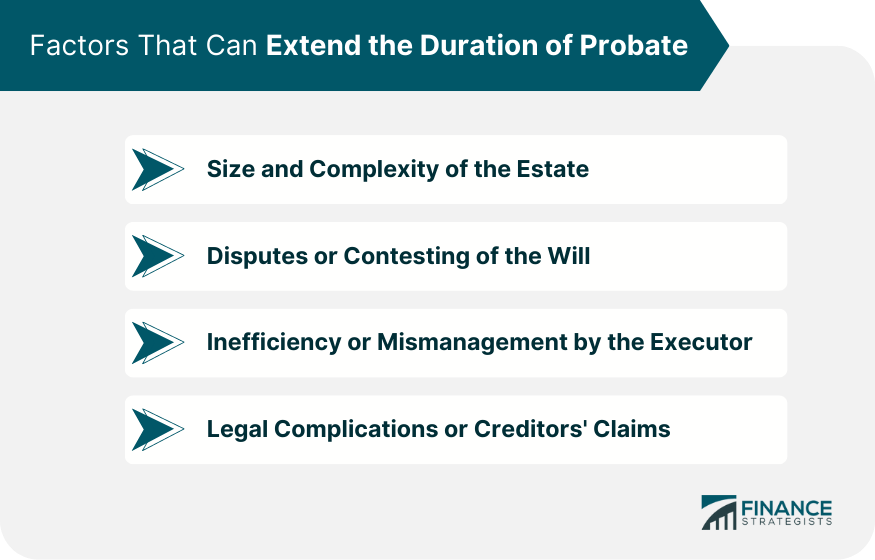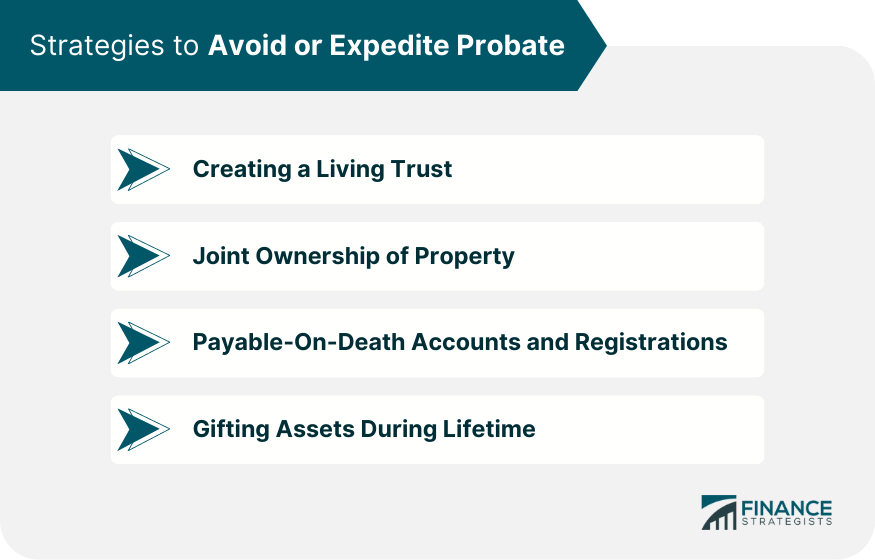Probate is the legal procedure that takes place after a person's death to ensure that their will is valid, their debts are paid, and their assets are properly distributed to their heirs or beneficiaries. The process is typically administered by a probate court and overseen by an executor named in the will or an administrator appointed by the court if there's no will. The probate process begins when a person, often referred to as the decedent, passes away. The executor or the administrator files a petition with the probate court to initiate the process. This includes presenting the original will (if any) and death certificate. The court then formally appoints the executor or administrator to carry out the decedent's wishes as stated in the will or, if there's no will, according to the state's laws of intestacy. During the probate process, the decedent's assets are inventoried and appraised. Any outstanding debts, such as taxes or creditor claims, are paid from the estate. Once all debts have been settled, the remaining assets are distributed to the heirs or beneficiaries according to the will or state law. The duration an estate remains in probate can significantly vary depending on several factors. On average, the probate process takes 1 to 2 years, but complex estates can take even longer. Factors influencing this timeframe include the size and complexity of the estate, disputes among heirs, the court's workload, and tax issues. Sometimes, resolving outstanding debts, identifying and notifying creditors, selling assets, or dealing with unique property types can prolong the process. If there's an ongoing lawsuit involving the estate, this can also extend the duration. It's crucial to consult with an experienced probate attorney to navigate the process effectively and within the shortest possible time. Larger estates with more assets can take longer to administer than smaller ones. It can take significant time to locate and appraise all assets, especially if they're diverse (real estate, business interests, foreign assets) or not immediately apparent. If someone disputes the validity of the will or its terms, the probate process can be significantly delayed. Disputes can take months or even years to resolve, depending on the complexity of the issues and the willingness of the parties to settle. If the executor is not diligent, organized, or competent in their duties, it can delay the process. Missed deadlines, incomplete paperwork, poor communication with beneficiaries, or improper management of assets can all contribute to extending the probate timeline. Sometimes, the decedent may leave behind debts or legal issues that need to be resolved. The executor must notify all known creditors and publish a notice of death to give unknown creditors a chance to file claims. Resolving these issues can take time, and if a creditor's claim is disputed, it can lead to further delays. Prolonged probate processes can significantly impact the estate and its beneficiaries. The costs of probate, including court fees, legal expenses, appraisal costs, and executor's fees, are generally paid out of the estate. The longer the probate process, the higher these costs tend to be. Further, a delay in asset distribution can impact beneficiaries who may be reliant on their inheritance for financial stability. Failure to properly complete the probate process can result in severe legal consequences. As a fiduciary of the estate, the executor could be held personally liable for any unpaid estate debts or unsatisfied claims. This could also lead to lawsuits from creditors or beneficiaries, resulting in additional legal costs and potential personal financial loss. Probate courts play a vital role in overseeing the process and ensuring it is completed in a timely manner. The courts enforce probate laws and rules, set deadlines, and resolve disputes. Executors are required to report to the court regularly and may face penalties for delays or mismanagement. A living trust, also known as a revocable trust, can be an effective tool for avoiding probate. In a living trust, assets are transferred to a trust during the individual's lifetime. Upon death, the assets are managed and distributed by a trustee, according to the terms of the trust. Since these assets are technically no longer part of the individual's estate, they bypass the probate process. Joint ownership with the right of survivorship can allow assets to avoid probate. When one owner dies, the property automatically passes to the surviving owner without the need for probate. Some assets, like bank accounts or securities, can be registered as "payable on death" (POD) or "transfer on death" (TOD). This allows these assets to be transferred directly to the named beneficiaries upon the owner's death, avoiding probate. One way to avoid probate is by reducing the size of the estate while still alive. This can be done by gifting assets to heirs or beneficiaries, subject to the annual gift tax exclusion amount. A probate attorney is a legal professional who advises executors and beneficiaries during the probate process. Their duties may include helping with court filings, advising on legal issues, assisting with asset inventory and appraisal, resolving disputes, and helping with estate taxes. Hiring a probate attorney might be necessary when the estate is large or complex, when there's a possibility of a will contest, or when there are significant debts or tax issues. Additionally, an executor may consider hiring an attorney if they feel overwhelmed by the probate process or wish to ensure they're fulfilling their fiduciary duties correctly. Hiring a probate attorney can be costly, but it's often worth the expense. The expertise of a probate attorney can help avoid legal pitfalls, resolve disputes quickly, and potentially save the estate money in the long run. Executors should weigh the potential costs against the benefits to determine whether hiring a probate attorney is the right choice for their specific situation. Probate duration varies with factors such as estate size, disputes, executor efficiency, and legal complications, usually lasting between 1-2 years. Extended probate can increase costs and delay asset distribution, impacting beneficiaries financially. Proper execution of probate duties is essential to avoid personal liabilities and lawsuits. Probate courts ensure the process is timely and resolve disputes. Avoiding or expediting probate can be accomplished through strategies such as creating a living trust, joint ownership of property, payable-on-death accounts, or gifting assets. A probate attorney's assistance can be invaluable in navigating complex estates or potential disputes, despite the associated costs. Carefully considering these factors and strategies can alleviate the probate process's challenges, ensuring a smoother transition of assets.Overview of the Probate Process
How Long Can an Estate Remain in Probate?
Factors That Can Extend the Duration of Probate
Size and Complexity of the Estate
Disputes or Contesting of the Will
Inefficiency or Mismanagement by the Executor
Legal Complications or Creditors' Claims

Legal Considerations and Implications of Extended Probate
Financial Impact on the Estate and Beneficiaries
Legal Consequences of Not Completing Probate
Role of Probate Courts in Ensuring Timely Completion
Strategies to Avoid or Expedite Probate
Creating a Living Trust
Joint Ownership of Property
Payable-On-Death Accounts and Registrations
Gifting Assets During Lifetime

Professional Assistance for Managing Probate
Role of a Probate Attorney
When to Consider Hiring a Probate Attorney
Cost-Benefit Analysis of Hiring a Professional
The Bottom Line
How Long Can an Estate Remain in Probate FAQs
Most estates stay in probate for around six months to two years. However, the duration can extend depending on various factors, including the complexity of the estate and potential legal disputes.
Several factors can influence the duration of probate, including the size and complexity of the estate, whether the will is contested, efficiency of the executor, and any legal issues or creditors' claims.
Extended probate can lead to increased costs, potential depreciation of assets, and delay in asset distribution to beneficiaries, creating financial implications for the estate and its heirs.
Yes, certain steps can help expedite the process, such as efficient management of estate assets, resolution of disputes, and professional assistance from a probate attorney.
Avoiding a lengthy probate can be achieved through careful estate planning strategies like creating a living trust, joint ownership of property, setting up payable-on-death accounts, or gifting assets during your lifetime.
True Tamplin is a published author, public speaker, CEO of UpDigital, and founder of Finance Strategists.
True is a Certified Educator in Personal Finance (CEPF®), author of The Handy Financial Ratios Guide, a member of the Society for Advancing Business Editing and Writing, contributes to his financial education site, Finance Strategists, and has spoken to various financial communities such as the CFA Institute, as well as university students like his Alma mater, Biola University, where he received a bachelor of science in business and data analytics.
To learn more about True, visit his personal website or view his author profiles on Amazon, Nasdaq and Forbes.















